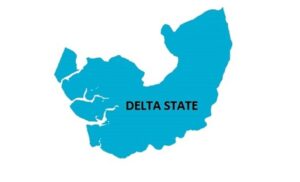

Prioritise crude oil supply to Dangote Refinery, others — Group tells NNPCL
A group of concerned Nigerian citizens has called on the Nigerian National Petroleum Company Limited (NNPCL) to prioritise crude oil supply to local refineries, including the Dangote Refinery, over foreign partners.
The group also urged President Bola Tinubu to intervene in the matter, warning that the NNPCL’s actions could be perceived as having the president’s tacit approval.
At a briefing held on Tuesday in Abuja, the group expressed concern over reports that the NNPCL intends to reduce crude oil supply to the Dangote Refinery from 300,000 barrels per day.
Obinna Francis, the group’s national coordinator, stated that this move could be part of a broader attempt to monopolise the oil sector and undermine local investors.
Francis highlighted that the removal of fuel subsidies had worsened hardship for Nigerians, with an increase in the price of Premium Motor Spirit (PMS) causing a rise in the cost of goods and services across the country.
The group also questioned the NNPCL’s claims that the Warri and Port Harcourt refineries are operating at 60-70% capacity, noting that the refineries have not produced any fuel.
Francis argued that the Dangote Refinery had been working to make petroleum products more affordable for Nigerians, and reducing its crude oil supply would hinder these efforts. He added that the refinery’s operations do not burden taxpayers, unlike the government-owned refineries.
The citizens called on President Bola Tinubu to intervene, emphasising that the NNPCL’s actions could be misinterpreted as having presidential approval.
Francis further commented, “Citizens are no longer surprised that the NNPCL insists the Warri and Port Harcourt refineries are operating at 60 to 70 per cent capacity. It is now clear that the real aim was to pave the way for reducing the crude allocation to the Dangote Refinery.”
He argued that the reactivation of the Warri and Port Harcourt refineries should not lead to a reduction in crude supply to local refineries, stating that the naira-for-crude agreement was primarily aimed at boosting local production and cushioning the volatility of the foreign exchange market.
“If the Warri and Port Harcourt refineries are indeed operational, the goal should be to make petrol more affordable for Nigerians, not to become an obstacle or a reason to adjust crude allocations,” Francis added.
The group also pointed out that while Dangote Refinery operates without costing taxpayers, the NNPCL is pursuing Project Leopard, which aims to raise $2 billion in exchange for crude oil, increasing the company’s crude loan volume to $8 billion over four years, with potential negative consequences and growing national debt.
“There is overwhelming evidence that the private sector has served the Nigerian public better than government-owned utilities and parastatals. Look at the power and telecommunications sectors, for example. The privatisation of the power-generating companies and the liberalisation of the telecommunications sector in 2001 have led to significant improvements,” Francis said.
He continued, “In contrast, Nigeria has spent over $30 billion on oil subsidies in the last five years, with little improvement in refinery capacity. The sums spent on turnaround maintenance (TAM) could have funded our health and education budgets for three years.”
Francis recalled that in 2007, an attempt to privatise the refineries was reversed due to pressure from unions. The government’s subsequent efforts to revamp the refineries have been largely unsuccessful, with significant funds spent on maintenance without tangible results.
The group concluded by reaffirming its support for the Dangote Refinery and calling for a stronger focus on public-private partnerships to address Nigeria’s refining capacity challenges.




